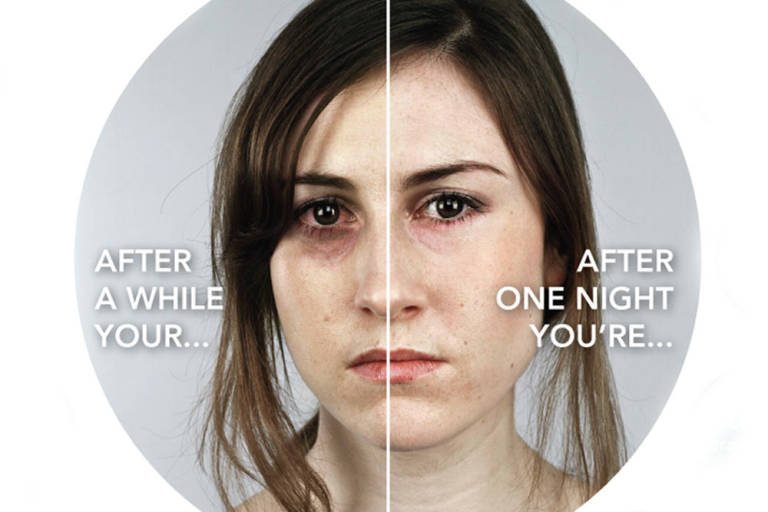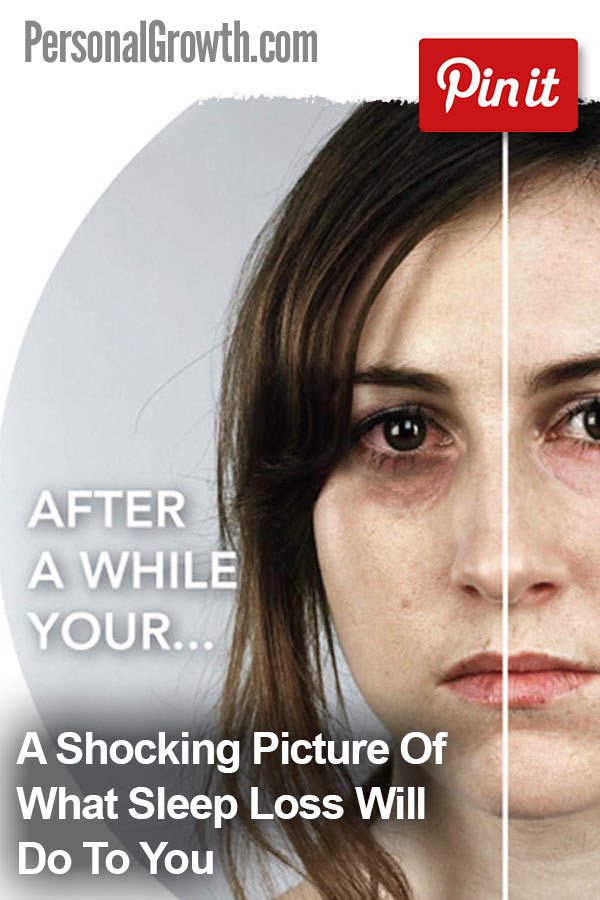

In these fast-paced times, it’s common to get less than the recommended 7-8 hours of sleep per night—in fact, with busy careers and family obligations in the picture, many people clock in at closer to 5-6 hours a night. However, there is frightening new evidence that just a week of sleeping fewer than six hours per night changes over 700 of your genes, and these changes start on the very first night that you fail to get adequate rest.
Infographic by Alissa Scheller for The Huffington Post
Short-Term Sleep Deprivation
You might think that skipping appropriate rest is no big deal if it only happens occasionally, but the truth is that it only takes a few days to undermine everything from your looks to your intelligence. Let’s take a closer look at what the latest sciences tells us can happen after just a couple of nights of sleep loss.
Studies show that even a few days of sleep deprivation leaves you hungrier. You’re more likely to eat large portions and experience cravings for foods that are high in calories and carbohydrates. There’s even data proving that the sleep-deprived are more likely to buy unhealthy foods at the grocery store!
There’s truth to the old saying that you need your beauty sleep. Recently published work in the journal SLEEP reports that people who have slept for fewer than six hours are scored as less attractive (and less approachable) by impartial observers. Dermatological research also indicates that skin ages more quickly who are sleep deprived.
Those who get fewer than six hours of sleep per night are three times more likely to have an accident while driving. Researchers from Manchester Metropolitan University have found that your eye-steering coordination takes a nosedive when you’re sleep deprived, and clumsiness increases.
Another recent discovery is that a single night of sleep deprivation appears to generate signs of brain tissue loss—participants in the relevant research had higher blood levels of two molecules that increase in response to brain damage. Although these results come from a fairly small study, they provide terrifying food for thought.
A group of scientists from Harvard Medical School and the University of California, Berkeley, used MRI scans of the brain to show sleep deprivation influences emotional response. Your brain’s emotional centers are over 60% more reactive when you’re tired, essential reverting to a “more primitive” response. This could lead to engaging in unnecessary conflict with loved ones, and to feeling irrationally sad, angry or scared.
Your immune system’s functionality depends on adequate sleep, during which it releases antibodies and proteins that you need to fight invading pathogens. For example, research conducted at Carnegie Mellon University suggests that just a few nights of fewer than seven hours of sleep makes you up to three times more likely to catch a cold.
Memory and focus are much poorer after even just a couple of nights of fewer than six hours sleep. You’ll forget everything from obligations to the location of important objects, and you won’t be able to consolidate new memories effectively. This means you can’t learn new things nearly as effectively.
Chronic Sleep Deprivation
The above risks are linked to just a few nights of sleep deprivation (or sometimes even less). However, if you maintain a pattern of poor sleep, you’re looking at even more negative consequences.
A landmark presentation at a major sleep conference in 2012 suggested that stroke risk is intimately related to hours of sleep per night. Specifically, fewer than six hours of sleep makes middle-aged and elderly people approximately four times more likely to have a stroke.
A recent study of 1,240 patients who had colonoscopies found a possible link between average hours of sleep and likelihood of a colorectal cancer diagnosis. Those who slept fewer than six hours were around 50% more likely to have colorectal adenomas, which can become cancerous over time. Meanwhile, research on breast cancer in 2012 showed aggressive breast cancers might be more common in the under-slept.
High blood pressure and clogged arteries are two significant risk factors for heart disease, and both are connected to chronic sleep deprivation. This may partly explain why regularly sleeping for fewer than six hours a night almost doubles your heart disease risk (even if you live an otherwise healthy lifestyle).
Either getting too little or too much sleep is associated with a higher likelihood of being diagnosed with type 2 diabetes. One factor in play here is that sleep deprivation decreases insulin sensitivity—a major predictor for diabetes.
Male fertility is also influenced by lack of sleep, and not just because of the diminished interest in sex that can result from exhaustion. Sperm count actually decreases by close to 30%, according to a publication in the American Journal of Epidemiology—bad news if you’re trying for a baby.
Since short-term sleep deprivation leads to unhealthy eating patterns, it’s perhaps no surprise that chronic lack of sleep is connected to higher rates of obesity. Levels of appetite h
Finally, if you generally sleep fewer than six hours a night, you’re significantly more likely to die at a younger age. This was shown in a SLEEP study that looked at over 1,700 men and women for more than a decade, and the risk applies even after adjusting for other risk factors (e.g. hypertension and diabetes).

